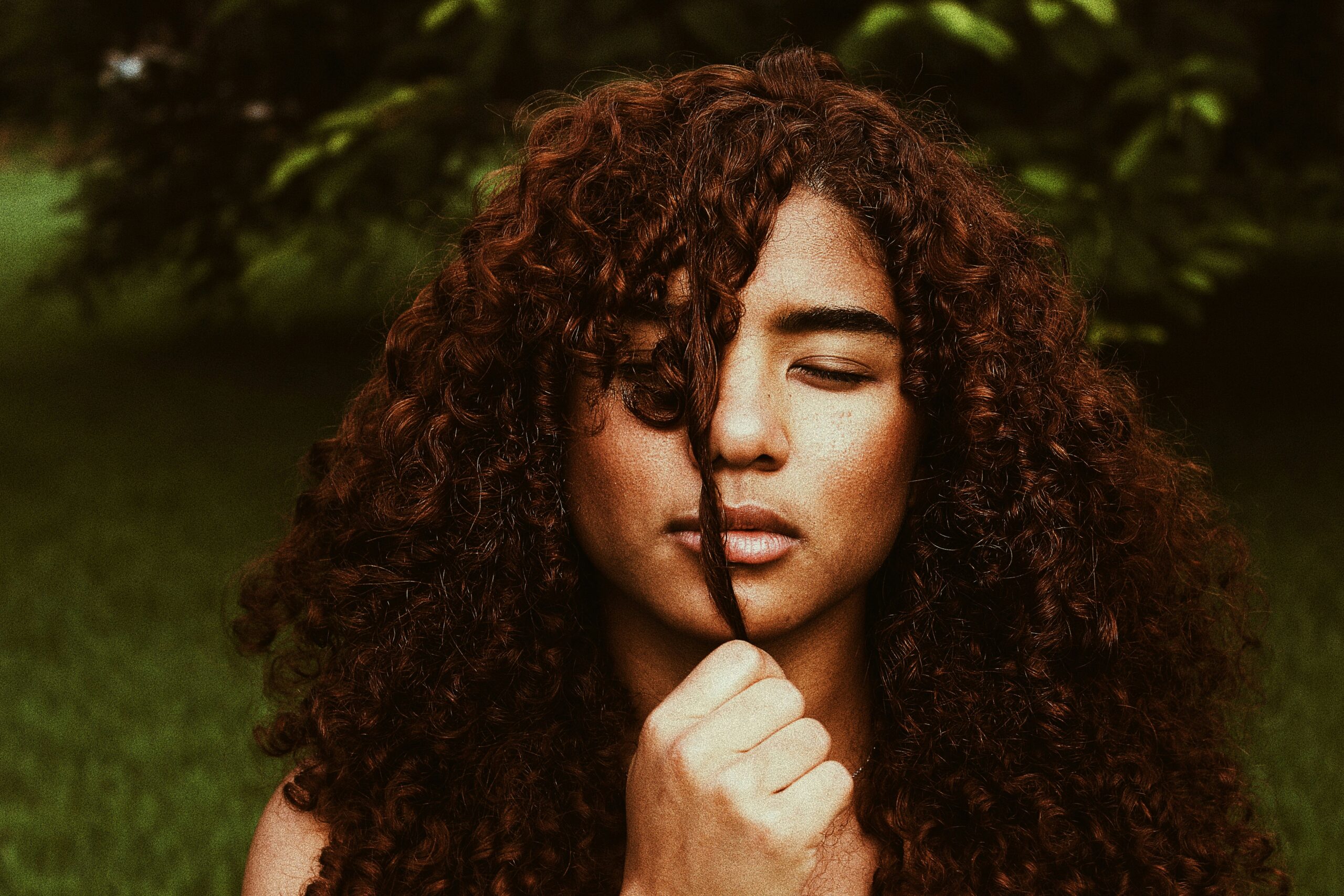Is this age-old practice the key to healthier, stronger strands?

Hair oiling has been around for generations, and is known for its ability to promote, healthy-looking, shiny hair; but only now is this practice starting to hit mainstream media. As someone with a mixed background, hair oiling was a default part of my haircare routine since I was very young and with an Indian grandmother, I grew up with her and my mom oiling our hair with castor oil (my grandmother used to make this oil) during our Sunday wash days. With that being a default hair care routine, I have adopted that practice with my two daughters.
In the last year or so, hair oiling took centre stage and it has basically blown up on social media with more and more haircare brands even launching their own hair oils. We’ve even seen it trending on social media, such as the Tiktok famous rosemary oil.
So, What Is Hair Oiling?
Hair oiling is an Ayurvedic tradition that has been around for centuries, and has been passed down from generation to generation within families. The ritual consists of applying an oil-based product to your scalp, evenly spreading it throughout your hair to provide some additional TLC to your hair care routine to increase shine, moisture and overall health. Hair oiling is often practiced alongside scalp oiling, but it’s worth noting that oil can be beneficial for both the hair and scalp separately.
How Often to Oil Hair
If you’re wondering how often you should oil your hair, it really comes down to your scalp and your hair type and needs. Do you have dry hair, flakes, dandruff or just want some regular scalp TLC? As a rule of thumb, adding it to your hair routine once a week should be a good starting point and from there, you can determine your hair needs.
Benefits of Hair Oiling
There are many benefits to oiling your hair regularly, so let’s take a closer look at some of them:
- Boost overall scalp health
- May promote hair growth
- Prevent hair breakage
- Repair damage hair
- Promote stronger hair
- Improve hair texture
- Frizz control & shine
- Add nourishment to parched strands
- Reduce dandruff
- Improves appearance of split ends
- Add softness
Types Of Hair Oils to Choose From
Let’s look at some of the popular ones and their distinct advantages:
With its thick texture, castor oil contains ricinoleic acid, a type of fatty acid, which may boost circulation in the scalp and subsequently promote healthier and stronger hair, but there is no conclusive evidence that castor oil can promote hair regrowth. But we know it’s a nourishing oil with beneficial results as a hair and scalp treatment.
Coconut oil is packed with fatty acids (especially lauric acid) that can improve hair health. It is one of the most popular oils for hair oiling and boasts antimicrobial properties.
Derived from the Rosmarinus officinalis plant, rosemary oil is renowned in the skin and haircare worlds for its powerful antioxidant, anti-inflammatory and antimicrobial properties. “Rosemary oil can help to condition and strengthen the hair and also works to reduce damage and breakage, making the hair appear stronger.”
Argan oil — or “liquid gold,” as many refer to it — is made from the fresh kernels of the fruit of the argan tree in Morocco. Argan oil has been shown to provide several health benefits when applied to the skin and many of those benefits extend to the hair. Argan oil is full of fatty acids and powerful antioxidants, such as vitamin E, that have been shown to have benefits for your scalp and hair.
A staple in your pantry, it is rich in antioxidants and vitamins, which can help to nourish the hair and scalp.
6. Almond Oil
Almond oil is an emollient. It has the essential fatty acids that can help in moisturizing the scalp and strands. Almond oil, when used regularly, penetrates to a cellular level to help soften the hair at the roots and calm the frizzy texture.
Jojoba oil is the liquid extracted from the seeds of the Simmondsia chinensis plant. The natural oil is a popular ingredient because of its numerous properties—it’s moisturizing and packed with vitamins and minerals—that are universally beneficial for hair health. It is a lightweight oil that is easily absorbed. It can help to moisturize the hair and scalp without leaving a greasy residue.
And check out the Best Canadian Hair Care Blogs and Websites here.


nice blog thanks for sharing.